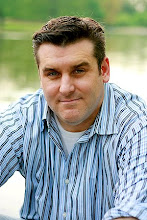En Marche... Zion's Camp Interesting Trivia
- The Prophet's Concern for Individuals in the Camp: "Elder Lyman O. Littlefield, now of Logan, Utah, was a boy thirteen years old with the camp of Zion which went up into Missouri. He narrated an incident of that journey which is characteristic of the Prophet's entire life, for his deeds and words of thoughtfulness were a constantly flowing stream. As we recollect Elder Littlefield's statement, it was this: 'The journey was extremely toilsome for all, and the physical suffering, coupled with the knowledge of the persecutions endured by our brethren who we were traveling to succor, caused me to lapse one day into a state of melancholy. As the camp was making ready to depart I sat tired and brooding by the roadside. The Prophet was the busiest man of the camp; and yet when he saw me, he turned from the great press of other duties to say a word of comfort to a child. Placing his hand upon my head, he said, "Is there no place for you, my boy? If not, we must make one." This circumstance made an impression upon my mind which long lapse of time and cares of riper years have not effaced'" [Cannon, George Q., Life of Joseph Smith, The Prophet, pp. 343-344].
- Wilford Woodruff's first meeting with the Prophet Joseph Smith was while he was target practicing with his brother Hyrum with a brace of pistols. As Joseph shook his hand "most heartily," he said, "Brother Woodruff, I've been out shooting at a mark, and I wanted to see if I could hit anything." And Wilford replied, "There is no law against a man shooting at a mark, that I know of." The Prophet invited the recent convert to help him tan a wolf skin which he wished to use on the wagon seat during his journey to Missouri. Wilford complied with the request, and often smiled when recounting his first meeting with the Prophet [Ivan J. Barrett, Joseph Smith and the Restoration, p. 277].
- Joseph Smith promised Brigham Young and his brother Joseph that if they accompanied him to Missouri that they would have the means to go and return, having means to make the journey, and not a hair of their heads would be lost [Ivan J. Barrett, Joseph Smith and the Restoration, p. 278]. The returned unharmed.
- The Prophet Joseph traveled incognito to Missouri, answering to the name of "Squire Cook" [Ivan J. Barrett, Joseph Smith and the Restoration, p. 278].
- Parley P. Pratt was sent ahead to visit the branches of the Church en route and muster in new recruits. He was very successful in doing this. When the camp left New Portage, OH, there were 130 men. By the time the group reached Missouri their number had increased to 207 men with one non-member: Dean Gould [Ivan J. Barrett, Joseph Smith and the Restoration, p. 287].
- While camped on the Chriton River, Lyman Wight baptized Dean Gould, the only non-member of Zion's Camp.
- A reason cited by many as to why the group was not attacked while traveling through Missouri is that the ferryman on the Illinois River crossing had reported back to the mob at Independence that Zion's Camp numbered 500 men strong when in reality it was just over 200 [Ivan J. Barrett, Joseph Smith and the Restoration, p. 282].
- When the Mormon Army crossed the Illinois River safely, the Prophet informed his brethren that angels went before them and they need have no fear. The official record of Zion's Camp is emphatic concerning "the presence of angels while on the march to Missouri, for," reads the chronicle, "we saw them" [Ivan J. Barrett, Joseph Smith and the Restoration, p. 282].
- Two days after crossing the Illinois River, the camp rested on the west bank. The Prophet and some of his brethren ascended an Indian burial mound several hundred feet above the water and from the summit could view all of the surrounding area for miles. While there, one of the men discovered the skeletal remains of a man with an arrow point between two of his ribs. The Prophet revealed that the skeleton was a good Lamanite named Zelph and that he had been a warrior and chieftan under the command of a great Nephite prophet named Onandagus, who was "known from the Hill Cumorah, or eastern sea to the Rocky mountains" [Ivan J. Barrett, Joseph Smith and the Restoration, p. 282]. Although the Book of Mormon does not mention either Zelph or Onandagus, the Prophet Joseph told the members of Zion's Camp that they were great warriors and that Onandagus was their leader, general and prophet. So the next time somebody asks you, "Name a Nephite prophet of old not mentioned in the Book of Mormon," tell them "Onandagus."





No comments:
Post a Comment